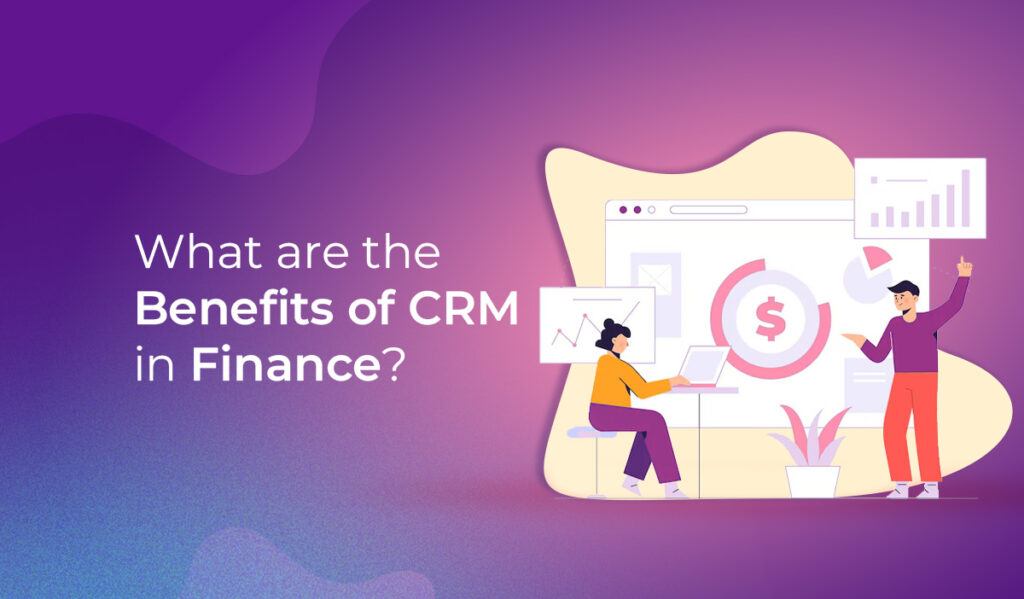The use of CRM in finance enables users to manage the business’s interactions with current and potential customers.
It encompasses various facets, including customer data management, sales automation, marketing campaign tracking, and customer service improvement. For example, banks and other financial institutions often use debt collection CRM systems for their debt collection and recovery activities.
CRM systems utilize sophisticated software platforms that centralize customer information, facilitate communication across departments, and enable seamless collaboration among teams. These platforms leverage data analytics, artificial intelligence, and machine learning algorithms to provide valuable insights and enhance decision-making processes.
Institutions and businesses in the Finance industry face multifaceted challenges ranging from fierce competition for market share to stringent regulatory compliance requirements.
CRM systems play a pivotal role in helping financial institutions navigate complexities and achieve strategic objectives. By providing a unified platform for managing customer relationships, CRM systems enable institutions to deliver personalized services, improve operational efficiency, and mitigate risks effectively.
Who Uses a CRM System in the Finance Sector?
Various entities and professionals, as mentioned in the list below, have started using CRM systems to manage their client interactions, streamline processes, and be more productive.
1. Banks and Credit Unions
A CRM in banking is mainly used to
- Manage relationships with individual customers or corporate clients
- Track account and lending activities
- Provide customized banking and financial solutions like loans, mortgages, and credit cards
The banking and credit union customer service teams leverage CRM systems to address inquiries, resolve issues, and provide superior customer support.
2. Investment Firms
The benefits of CRM in finance are leveraged by several institutes such as investment banks, asset management firms, hedge firms, and private equity firms.
A robust CRM system helps these firms to manage client relationships and investment portfolios. Moreover, client-facing professionals, like relationship managers and investment advisors use CRM to
- Track client interactions
- Record investment preferences
- Provide personalized investment advice
A banking CRM is also used by back-office operation teams to manage client onboarding, track investment performance, and generate reports for regulatory compliance and client reporting purposes.
3. Insurance Companies
In the insurance sector, CRM systems are used by sales and underwriting teams to manage customer relationships, track policy information, and generate quotes.
Claims processing departments utilize CRM systems to track claim submissions, manage claim statuses, and facilitate communication with policyholders.
Additionally, insurance companies leverage CRM systems to analyze customer data, identify cross-selling opportunities, and enhance customer retention strategies.
4. Financial Advisors and Wealth Managers
Managing client relationships, tracking financial goals, and providing personalized financial advice are some aspects where financial advisors and wealth managers use a CRM system.
A CRM tool helps these professionals to
- Maintain comprehensive client profiles
- Track investment performance
- Automate routine administrative tasks such as scheduling appointments and sending client communications
5. Mortgage Lenders and Brokers
They use CRM systems to track loan applications and streamline the mortgage origination process.
A financial CRM enables mortgage professionals to capture borrower information, track application progress, and communicate with clients and other stakeholders involved in the loan process.
6. Payment Processors and FinTech Companies
FinTech startups, and financial technology companies leverage CRM systems to manage merchant relationships, track transaction activities, and provide customer support.
A CRM enables payment processors to onboard merchants, track transaction volumes, and address merchant inquiries and issues on time.
CRM systems help FinTech companies analyze customer data, identify market trends, and tailor product offerings to meet customer needs.
7. Accounting and Audit Firms
CRM systems enable accounting and audit professionals to maintain detailed client profiles, track project deadlines and deliverables, and collaborate with team members effectively.
They can also identify cross-selling opportunities, track client referrals, and enhance client satisfaction through personalized service delivery.
8. Risk Management Departments
Risk management departments within financial institutions leverage CRM systems to assess and mitigate risks associated with client relationships, transactions, and market activities.
CRM systems enable risk management professionals to
- Maintain comprehensive risk profiles for clients
- Track exposure limits
- Monitor risk concentrations across various business lines
- Analyze historical data and identify emerging risks
- Implement risk mitigation strategies
Benefits of the Use of CRM in Finance
The use of CRM in finance is multifaceted. The points mentioned below cover some of the major ways in which using CRM systems can benefit professionals in the finance industry.
1. Enhanced Customer Management
CRM tools have been used, since the beginning, to store and manage customer data. In the present market, these tools have upgraded to the extent that they are no longer mere data storehouses.
Smart analytics provide CRM users with a comprehensive view of the customer lifecycle. This is enhanced by multiple integration with third-party applications used by the financial institution.
All customer interactions, from phone calls and Emails to a loan inquiry, get captured in the CRM system. This makes it easier to identify selling and cross-selling opportunities.
2. Streamlining Sales Processes
The use of the right CRM in finance allows the consolidation of prospect and client data in a centralized database. This data consolidation fine-tunes the sales process by eliminating the need to search for data through multiple systems.
Automation such as email workflows, task reminders, and scheduling timely follow-ups reduces the manual work of sales reps and enables them to efficiently manage leads throughout the pipeline.
Finance CRMs can integrate with other systems and tools commonly used in the finance industry, such as accounting software, financial planning tools, and portfolio management systems. This integration streamlines workflows and ensures data consistency across different platforms.
3. Targeting the Right Audience at the Right Time
CRMs track client and prospect behavior, such as website visits, email opens, and content downloads.
This data provides insights into client interests and engagement levels, allowing sales teams to identify opportune moments to reach out with targeted offers or follow-ups.
Using the data stored in the CRM, sales teams can personalize their communication with clients and prospects by segmenting their lists.
By addressing individuals by name, referencing past interactions or transactions, and offering relevant products or services, sales representatives can build stronger connections and increase the likelihood of conversion.
4. Ensuring Adherence and Mitigating Risks
In the finance industry, compliance with regulations is crucial. Many finance CRMs offer features to help sales teams adhere to regulatory requirements, such as tracking client consent, managing documentation, and ensuring data security.
For example, central storage and management of client documentation, including account agreements, disclosure forms, and client communications helps ensure compliance with regulatory requirements related to document retention.
Obtaining and managing client consent is essential for regulatory compliance, especially regarding data privacy and financial transactions. A CRM in finance can track client consent status, preferences, and opt-in/opt-out choices, ensuring that sales and marketing communications adhere to regulatory guidelines.
5. Driving Informed Decision Making
Data is the lifeblood of the finance industry, providing valuable insights that inform strategic decision-making processes. CRM systems serve as repositories of customer data, enabling institutions to analyze trends, identify opportunities, and mitigate risks effectively.
Advanced analytics capabilities, such as predictive modeling and machine learning algorithms, empower institutions to forecast future market trends, anticipate customer needs, and develop targeted strategies.
By harnessing data insights, financial institutions can make informed decisions that drive competitive advantage and fuel business growth.
Key Takeaways
A CRM can serve any industry as long as it is customizable. Before choosing one that meets the requirements of the financial sector, keep the use cases in mind.
Lead scoring, automated lead assignment, list segmentation, call recording, workflow automation, task management, and reminders, etc are some features in a CRM that help finance professionals do their jobs better.
Whether you are a debt collection agent or a wealth manager, there is a CRM for all your needs.





